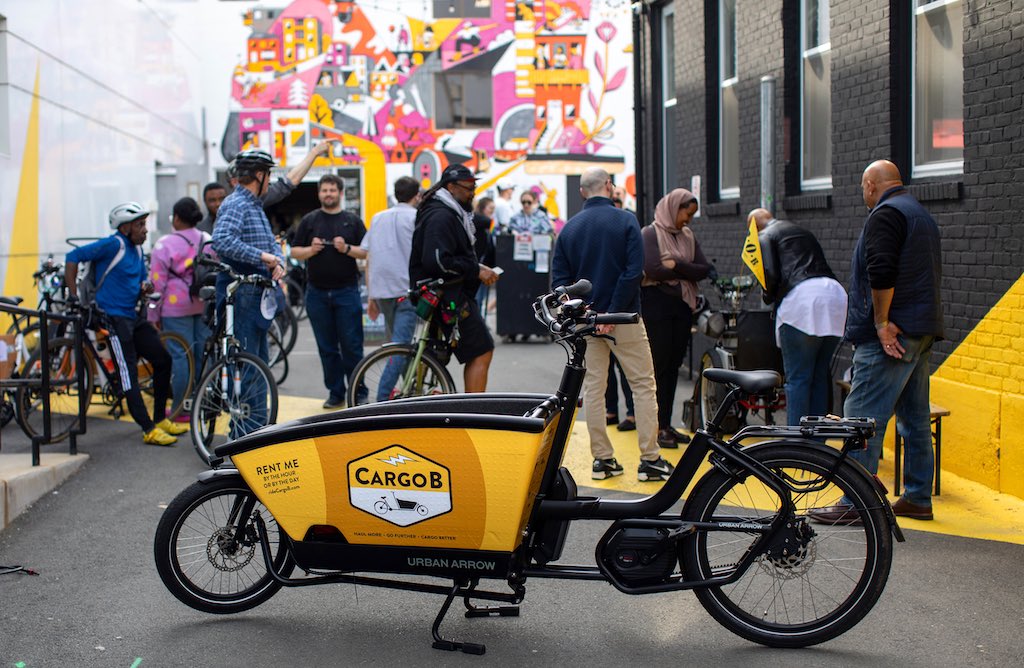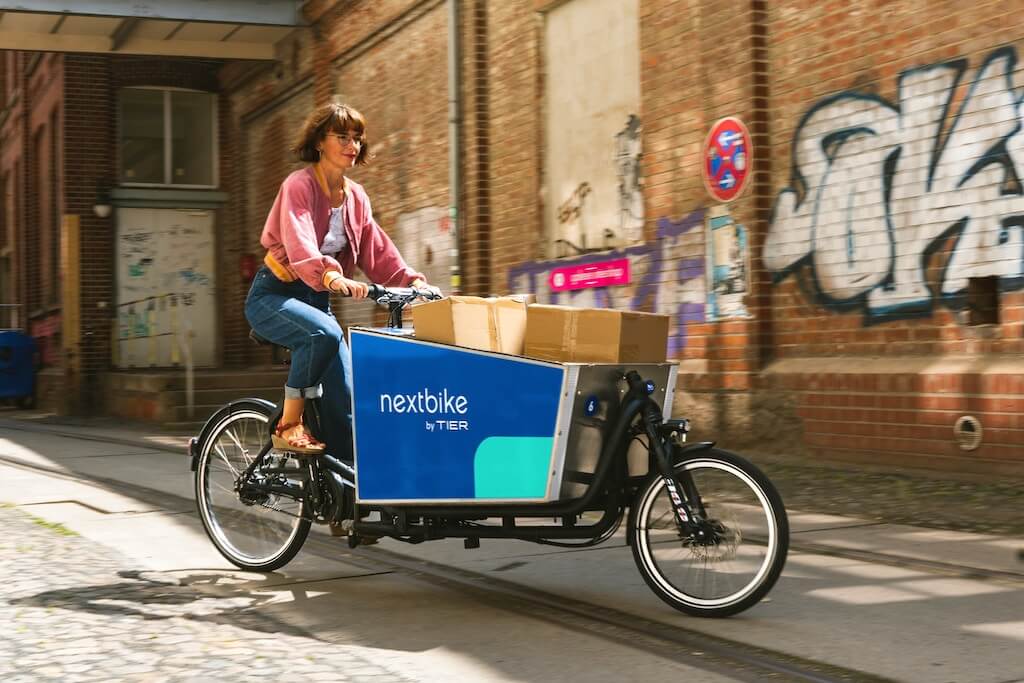Autumn Gear Guide
Find inspiration in our Gear Guide that will keep you out on your bike through wind or rain.
Download NowLondon is charging ahead in the race toward greener urban logistics with a movement that’s fast, efficient, and eco-friendly: the Cargo Revolution Borough Charter. Spearheaded by campaigners, local businesses, and forward-thinking policymakers, this initiative is shifting urban transport away from polluting vans and toward nimble, sustainable cargo bikes. At the center of this shift is […]
London is charging ahead in the race toward greener urban logistics with a movement that’s fast, efficient, and eco-friendly: the Cargo Revolution Borough Charter. Spearheaded by campaigners, local businesses, and forward-thinking policymakers, this initiative is shifting urban transport away from polluting vans and toward nimble, sustainable cargo bikes. At the center of this shift is the Cargo Revolution Borough Charter, a collaborative commitment encouraging local authorities to make cargo bikes an integral part of their transport strategy.
The Cargo Bike Borough Charter is part of the Cargo Revolution campaign, led by Glimpse, a creative collective known for using imaginative campaigns to drive positive social and environmental change. In collaboration with MP Smarter Travel and the Clean Cities Campaign, and funded by Impact on Urban Health, this initiative aims to promote cleaner, more sustainable transport solutions in London.
To dive deeper into the motivation behind this bold campaign, we spoke with Edie Gill Holder of Cargo Revolution, one of the people leading the charge for cleaner city logistics.
According to Holder, the campaign was born out of necessity and opportunity. “We had been campaigning for almost a year on the adoption of cargo bikes in London,” she shares. “Through conversations with businesses using cargo bikes, those wanting to adopt them, and policymakers interested in this still-novel mode of transport, we saw an opportunity both to tackle some of the practical barriers to adoption and to give London authorities a chance to get behind cargo bikes.”
The campaign recognized a growing appetite for change across the city. Holder and her team saw political leaders eager to embrace sustainable alternatives to diesel-fueled delivery vans, and thus, the Cargo Bike Borough Charter was born.

DHL cargo bike in London
The charter is a strategic framework designed to help local authorities make cargo bikes a more accessible and viable transportation option.
“The charter is a set of commitments, based around five key areas, that can improve cargo bike accessibility in London boroughs,” Holder explains. These commitments, developed alongside clean-air organizations, local authorities, and cargo bike businesses, are designed to be inclusive, practical, and achievable. By signing up, local authorities are committing to prioritize cargo bikes in their transport strategy and work to remove barriers to adoption.
The five core areas of the charter are:
Cargo bikes are more than just a novel trend—they’re proving to be a game-changer for urban transport. Studies show that in many cases, cargo bikes are faster, cheaper, and more efficient than delivery vans in city centers.
A recent study conducted in the UK found that cargo bikes deliver goods 60% faster than vans in congested urban areas, completing multiple deliveries in less time due to their ability to weave through traffic and park closer to drop-off points. In addition, cargo bikes have significantly lower operating costs, require less maintenance, and can travel longer distances without the environmental impact of traditional delivery vehicles.
For businesses, this means faster deliveries, reduced fuel costs, and a smaller carbon footprint. For cities, it means less congestion, cleaner air, and safer streets. It’s a win-win for everyone involved.
While the Cargo Bike Borough Charter is initially focused on London, the movement has piqued interest far beyond the capital. “We’ve had interest from other cities outside of London, and we have plans to announce an initial round of non-London borough cities imminently,” Holder says.
The potential for cargo bikes to revolutionize transport isn’t limited to the UK, and interest is growing worldwide.

CargoB launches the on-demand electric cargo bike share system in North America.
Beginning in the spring of 2024, CargoB co-founders Dorothy Fennell and Zack DeClerck lunched app-based access to a fleet of Urban Arrow bikes purpose-built to carry heavy or large loads, with locations in Boston, Cambridge, and Somerville, Massachusetts.
Across the Atlantic, cities in North America are facing some of the same challenges as London: congested roads, polluted air, and the need for more sustainable urban transport solutions. So, could cargo bikes work in cities like New York, Toronto, or San Francisco?
The answer is a resounding yes.
While North American cities often have more sprawling layouts than European ones, cargo bikes can still play a crucial role in urban logistics. A study from the University of Toronto found that cargo bikes could replace as much as 50% of urban deliveries currently being made by vans . In dense urban areas such as Manhattan or downtown Toronto, cargo bikes have the potential to alleviate congestion while reducing delivery costs for businesses.
In fact, some North American cities are already embracing cargo bikes. Cities such as Portland, Oregon, and Vancouver, Canada, have introduced pilot programs encouraging businesses to use cargo bikes for deliveries. And with e-cargo bikes becoming increasingly popular, offering longer range and more power, the potential for adoption in cities across the continent is growing.
Ultimately, the Cargo Bike Revolution is about creating cleaner, healthier cities by making cargo bikes a mainstream mode of transport. “London needs to see a major shift in the way we move around the city,” says Holder. The charter’s goal is to ensure that anyone who wants to use a cargo bike has the opportunity to do so, whether through improved infrastructure, incentives, or local trial schemes.
By reducing the number of polluting vehicles on the road, cargo bikes offer a practical solution to both environmental and logistical challenges in urban areas. The scale of their potential impact requires cooperation across local authorities, but the charter is paving the way for this collaborative effort.
For individuals who want to get involved in the Cargo Bike Revolution, the campaign encourages people to reach out to their local authorities. “Encourage your local authority or city council to sign the charter,” Holder urges. On the campaign’s website, supporters can find resources like images, social media posts, and email templates to help spread the word.
Whether you’re a business owner looking for a more sustainable delivery solution, a resident keen on reducing urban pollution, or simply a cargo bike enthusiast, the revolution welcomes your support.
With the Cargo Bike Borough Charter live for over a year, fifteen local authorities have already signed up, and more announcements are on the horizon.
“We launched it last summer with an ice cream bike and a pedal-powered barbershop quartet,” Holder recalls, reflecting on the fun and creative ways the campaign has engaged the public.
But the work is far from over. The ultimate goal, according to Holder, is nothing short of global adoption. “There’s no end date,” she says. “The goal is for every council, town, and city around the world to be cargo bike friendly.”
As more local authorities sign on, the Cargo Bike Revolution is steadily gaining momentum. Whether in London, North America, or beyond, the future of urban transport may very well belong to the humble, efficient, and eco-friendly cargo bike.
Find inspiration in our Gear Guide that will keep you out on your bike through wind or rain.
Download Now




Leave a comment